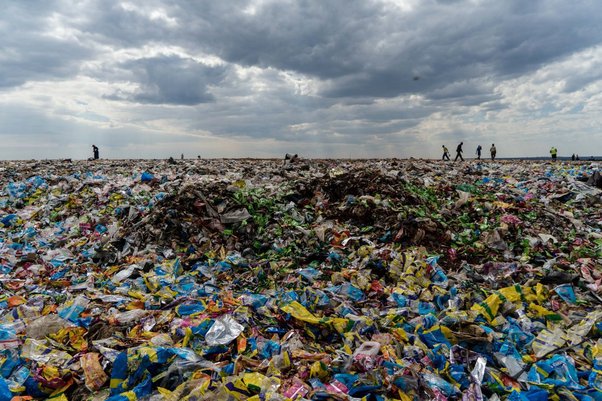Changes to the Federal Reserve’s Main Street Lending Program are a giveaway to oil industry players following intensive lobbying efforts
As the government continues to increase its intervention to keep US business impacted by the COVID-19 pandemic afloat, one of the biggest producers in the US oil and gas market stands to benefit after the Federal Reserve announced changes to its Main Street Lending Program at the end of April.
The changes come after the firm – Occidental Petroleum – and the wider industry launched a vast lobbying effort to secure access to the Federal Reserve’s lucrative bailout funds.
The Fed said it would now allow businesses with up to 15,000 employees or up to US$5 billion in annual revenue to apply for assistance under the program, which was established to assist small business owners whose companies were impacted by the pandemic. Furthermore, the Fed lowered the minimum loan size requirements from US$1 million to US$500,000 and increased the maximum loan size to US$200 million.
According to Bharat Ramamurti, a member of Congressional Oversight Commission tasked with overseeing the distribution of the coronavirus stimulus funds, companies who receive these loans have “no real obligation to retain or rehire workers” – despite the Fed saying otherwise.
Previously, eligibility was limited to companies with up to 10,000 employees and[1] up to US$2.5 billion in annual revenue, and prohibited the use of the loans for existing debt — something that disqualified many companies in the energy sector from applying.
With these changes, Houston-based Occidental Petroleum, the top producer in the prolific Permian Basin,[2] just made the eligibility cutoff with its workforce of 14,400 employees. While it’s not yet clear if Occidental will apply to the lending program, the firm was one of several oil and gas companies to see the prices of its corporate bonds rise in the wake of the Fed’s changed policy – a sign that investors expected the change to benefit the firm.
Occidental among top political spenders in industry
The Fed's changes mark a substantial win for Occidental, which lobbied hard for both state and federal financial assistance in early April. This effort went as far as encouraging company employees to write to members of Congress with a so-called wish list of requests for assistance, topped by a demand for extra liquidity.
Occidental exercises significant political influence. In 2019, the firm spent US$8.67 million on lobbying, the fourth highest amount of US oil and gas firms, only behind Koch Industries, Exxon Mobil and Chevron Corp.
In addition to its lobbying efforts, Occidental's employees and corporate Political Action Committee (PAC) – an entity set up to make campaign contributions – have so far contributed more than US$1 million to federal political campaigns and organizations such as the National Republican Congressional Committee during the 2020 election cycle. Among the lawmakers whose campaigns Occidental's PAC contributed to are four of the senators who lobbied for the Fed's changes to the Main Street Lending Program: Sen. Ted Cruz (R-TX), Sen. Lisa Murkowski (R-AK), Sen. Jim Inhofe (R-OK), and Sen. John Barrasso (R-WY).
Occidental is not alone in courting members of Congress for preferential treatment through campaign contributions and lobbying. The oil and gas sector, as a whole, pumped nearly US$60 million into the coffers of federal candidates, parties and outside groups between 2019 and 2020, with roughly 85 percent of that funding going to Republicans.
Furthermore, Occidental's CEO Vicki Hollub personally contributed more than US$14,000 to federal campaigns between Jan. 3, 2019 and March 31, 2020 through individual contributions to Occidental's PAC, as well as two US$2,800 direct contributions to Senate Majority Leader Mitch McConnell's campaign in February and March of this year.
Occidental stands to benefit after senators' and industry group lobbying
While the Fed claims the changes were not explicitly aimed at benefitting the fossil fuel industry, they follow heavy lobbying by government officials, industry stakeholders and members of Congress over the past month. The new policy mirrors requests from the Independent Petroleum Association of America (IPAA) – of which Occidental’s CEO is a board member – and US Senator Ted Cruz – a recipient of Occidental’s campaign contributions.
Both the IPAA and Cruz sent letters to Federal Reserve Chairman Jerome Powell in late April asking for said modifications. Cruz and 10 other senators sent a seperate letter to both Powell, Treasury Secretary Steve Mnuchin, and Energy Secretary Dan Brouillette, urging them to make the Fed’s programs “accessible to domestic energy producers.”
In the same letter, the Senators also suggested that the Fed shift the credit rating cutoff date for its corporate bond-buying programs from March 22 to early March. Were this change to occur, according to an analysis by the Rainforest Action Network, the only beneficiary would be Occidental, currently ineligible after its rating was downgraded to junk on March 18.
While that further change has not yet been made, the Fed’s expansion of the Main Street lending program has already fueled growing concerns about a federal bailout of the US oil and gas industry. Prior to the COVID-19 pandemic, the US was set to produce nearly two thirds of all the world’s new oil and gas over the next decade – yet the latest climate science shows that to avoid the worst impacts of climate change, there should be no production from new fields anywhere in the world.
Despite this huge forecast growth, the industry was already struggling, with 52% of its debt either below investment grade or very close to it at the outset of the pandemic. These financial pressures have been hugely exacerbated as a result of the pandemic, with oil prices crashing to historic lows.
Though many energy companies were previously shut out of the lending program due to high debt-to-earnings ratios and exceeding employee count and revenue limits, Andrew Park – a Washington, DC-based analyst with Americans for Financial Reform – noted on Twitter that several previously-ineligible energy companies could now qualify for the aid, including Occidental Petroleum and Oklahoma's Chesapeake Energy, which was reportedlypreparing to file for Chapter 11 bankruptcy protection on April 29, 2020.
US Senator Chuck Schumer (D-NY) excoriated the Trump administration over the move and suggested that the Federal Reserve's changes were the result of presidential campaign contributions from oil and gas companies and resultant pressure from President Donald Trump. “President Trump is rushing to bail out big oil companies after their CEOs donated millions to the Trump campaign, while so many Main Street businesses are still waiting to get help,” Schumer said in a statement. “It’s outrageous that small businesses are fighting for limited funds, while the Trump administration is bending over backwards to shower these oil companies with billions of taxpayer dollars.”
Great news out of the Fed today in support of struggling U.S. energy companies. At the direction of President @realDonaldTrump, I will continue to work with Secretary @stevenmnuchin1 to provide other relief to the industry and fill our strategic reserves. https://t.co/v3lTRV3zUR
— Dan Brouillette (@SecBrouillette) April 30, 2020
The administration has done little to dissuade these concerns, with Energy Secretary Dan Brouillette lauding how the changes would help the fossil fuel industry at President Trump’s request.
Recommendations
- The Federal Reserve should undo the recent expansion of the Main Street Lending Program, and refrain from any further action that appears targeted to benefit Occidental Petroleum, the oil and gas sector or any specific industry.
- Instead of bailing out the fossil fuel industry, Congress and the Administration should focus on the needs of vulnerable communities, essential workers, and struggling small businesses. One way of addressing this is to pass the ReWind Act, which would prohibit a bailout of the fossil fuel industry during the pandemic with funds appropriated from the CARES Act and block executive actions to aid the fossil fuel industry.
- Furthermore, echoing a call by the Securities and Exchange Commission chair, the federal government should require any publicly-traded company seeking and receiving public funds during the pandemic to publicly disclose their intention to seek government assistance and the purposes for which that assistance is being sought. Doing so will promote both corporate and government transparency about how taxpayer money is being distributed and spent.
- Occidental’s role in these controversial changes to the Fed’s bailout program highlights the need to curb the damaging influence of not only the fossil fuel industry, but also the larger problem of undue corporate influence in US politics. Ultimately, Congress should pass a constitutional amendment overturning the 2010 Citizens United decision, where the Supreme Court held that election spending by independent-expenditure-only PACs and corporations was a constitutional right.
- Congress should also curb lobbying expenditures by companies across all sectors, for example by taxing them or requiring that shareholders approve any significant lobbying expenditures.
Footnotes:
[1] Previously, companies were eligible to apply if they had up to 10,000 employees AND up to $2.5 billion in annual revenues. The Fed's changes to the Main Street Lending Program not only change the scope of eligibility, but make the employee limits and annual revenue limits mutually exclusive — an either/or situation instead of mutually inclusive.
[2] Rystad Energy UCube – Highest total oil and gas production by company from the Permian Basin
Preview image credit: Jay L. Clendenin/Los Angeles Times via Getty Images
Read the full report
Download Resource

